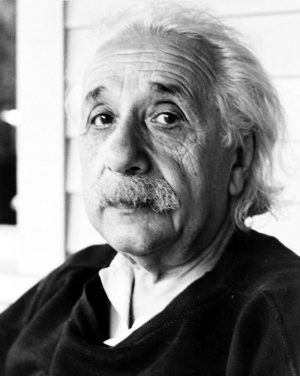Albert Einstein died on the 18th of April, 1955, due to an abdominal aortic aneurysm that burst and caused internal bleeding. This aneurysm was previously repaired in 1948 by German surgeon Rudolph Nissen. However, on the day before Einstein’s death, the surgical support fell apart, which led to a fatal rupture. At the time, Einstein was writing down the draft of a speech he was planning to deliver on television in connection with Israel’s seventh founding anniversary. He decided to take his draft with him to the hospital, hoping to complete his speech. Unfortunately, he ran out of time.
At Princeton Hospital, where Einstein was brought, he declined to have surgery done on the aneurysm. He was quoted as saying, “I want to go when I want. It is tasteless to prolong life artificially. I have done my share; it is time to go. I will do it elegantly.” He died the following morning, aged 76. Within seven and a half hours of Einstein’s death, the pathologist Thomas Stoltz Harvey took out the famous physicist’s brain from his cranium without approval from his family. He hoped that neuroscientists of the future would be able to study the preserved brain and be able to learn what made the physicist so intelligent. Stoltz then took the brain to the University of Pennsylvania, slicing it into several pieces. He kept some of the samples to himself while giving the others to eminent pathologists.
Einstein’s body was cremated in Trenton, New Jersey, after which his ashes were dispersed in an undivulged place.
In his eulogy, then-President Eisenhower said of Einstein, “For the past 22 years, the United States has been the freely-chosen home of Albert Einstein. For 15 years, he has been a citizen of the United States by his own free and deliberate choice. Americans welcomed him here. Americans were proud, too, that he sought and found here a climate of freedom in his search for knowledge and truth. No other man contributed so much to the vast expansion of Twentieth Century knowledge. Yet no other man was more modest in possession of the power of knowledge, more sure that power without wisdom is deadly. To all who live in the nuclear age, Albert Einstein exemplified the mighty creative ability of the individual in a free society.”
In 1965, during a memorial lecture at UNESCO headquarters, the theoretical physicist Robert Oppenheimer spoke of Einstein as he knew him: “He was almost wholly without sophistication and wholly without worldliness … There was always with him a wonderful purity at once childlike and profoundly stubborn.”
